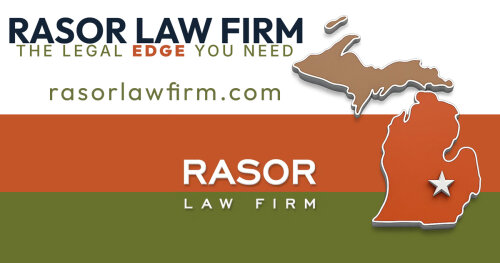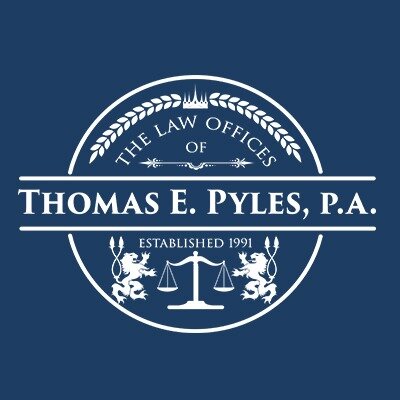Best Wrongful Death Lawyers in Maryland
Share your needs with us, get contacted by law firms.
Free. Takes 2 min.
Or refine your search by selecting a city:
List of the best lawyers in Maryland, United States
About Wrongful Death Law in Maryland, United States
Wrongful death law in Maryland provides a legal avenue for surviving family members to pursue compensation when a loved one dies due to the negligence, reckless acts, or intentional harm caused by another person or entity. Such claims not only seek financial recovery for losses incurred by the family but also hold responsible parties accountable for their actions. Maryland’s law is designed to support the dependents of the deceased and to remedy the injustices caused by preventable and wrongful deaths.
Why You May Need a Lawyer
Wrongful death cases can be complicated, both emotionally and legally. Individuals may require legal help in a range of situations, such as fatal car accidents, medical malpractice incidents, workplace accidents, defective product injuries, and violence or crime that leads to death. A seasoned lawyer can help families and dependents navigate these difficult times by:
- Determining the viability of a claim based on Maryland law
- Gathering evidence and expert testimony necessary to prove liability
- Calculating and justifying the full range of damages suffered
- Negotiating with insurance companies or opposing parties
- Guiding claimants through court procedures and legal filings within required time limits
Because of the complexity and strict deadlines involved, it is advisable to consult with legal professionals experienced in Maryland wrongful death cases.
Local Laws Overview
Several distinctive features of Maryland’s wrongful death laws are important for claimants to know:
- Who Can File: Under Maryland law, primary beneficiaries typically include the deceased’s spouse, children, and parents. If there are no primary beneficiaries, secondary beneficiaries such as siblings or other relatives may bring a claim.
- Types of Claims: Maryland law recognizes two separate claims: a “wrongful death” action compensates family members for their losses, while a “survival action” allows the estate to seek damages for the decedent’s injuries prior to death.
- Statute of Limitations: Generally, an action must be filed within three years of the date of death. There are limited and specific exceptions, so timely action is critical.
- Damages: Monetary compensation may include loss of financial support, loss of companionship and care, mental anguish, and in some cases, funeral expenses and medical bills. Maryland law caps certain damages, especially non-economic damages for pain and suffering.
- Shared Fault: Maryland follows the contributory negligence doctrine. If the decedent is found even partially at fault for the events leading to death, recovery may be barred.
Frequently Asked Questions
What is considered a “wrongful death” in Maryland?
A wrongful death occurs when a person dies as the result of another person’s or entity’s negligent, reckless, or intentional actions. This can include car accidents, medical mistakes, defective products, or criminal acts.
Who can file a wrongful death lawsuit in Maryland?
Primary beneficiaries such as the deceased person’s spouse, children, or parents can file a claim. If there are no primary beneficiaries, secondary beneficiaries like siblings, cousins, or other relatives might be eligible.
How long do I have to file a wrongful death lawsuit?
In Maryland, the statute of limitations is generally three years from the date of death. Some exceptions may apply, but missing this deadline can prevent you from recovering damages.
What damages are recoverable in a Maryland wrongful death case?
Damages can include compensation for lost financial support, loss of companionship, pain and suffering of loved ones, funeral expenses, and the decedent’s medical bills. Certain damages are subject to legal caps.
Can I file both a wrongful death and a survival action?
Yes. The wrongful death action compensates surviving family members for their losses, while the survival action allows the deceased’s estate to recover damages for harm suffered before death.
Does contributory negligence affect a wrongful death claim in Maryland?
Yes. Maryland uses contributory negligence, which can completely bar recovery if the decedent was even slightly at fault in causing their own death.
Is there a limit to the damages I can recover?
Maryland law sets caps on non-economic damages such as pain and suffering and loss of companionship. These caps adjust every year, so the maximum recoverable amount may vary depending on when the claim is made.
What if the responsible party faces criminal charges?
Civil wrongful death actions are separate from criminal trials. You may pursue a civil claim regardless of whether criminal charges are filed or result in conviction.
What should I do immediately after a wrongful death occurs?
Contact a qualified wrongful death attorney as soon as possible. Collect and preserve evidence such as police reports, medical records, and witness contact information to support your claim.
How are legal fees handled in wrongful death cases?
Many lawyers handle wrongful death cases on a contingency fee basis, meaning they only get paid if they recover money for you. Discuss fee arrangements with your attorney before proceeding.
Additional Resources
If you need more information or support regarding wrongful death claims in Maryland, the following resources may assist you:
- Maryland Judiciary - Information on court procedures and forms
- Maryland State Bar Association - Lawyer referral services and legal resources
- Maryland Attorney General’s Office - Consumer protection and victim assistance
- Local Legal Aid Societies - Free or reduced-cost legal assistance for qualifying individuals
- Support Groups for Grieving Families - Community organizations offering guidance and emotional support
Next Steps
If you believe you have a wrongful death claim in Maryland or if you need legal advice:
- Gather all relevant documents, such as the death certificate, police reports, and medical records
- Write down your timeline of events and any details about the incident
- Contact an attorney who specializes in wrongful death cases as soon as possible to evaluate your potential claim
- Discuss all possible beneficiaries with your lawyer to ensure your claim is filed by an eligible party
- Act quickly to avoid missing important deadlines that could jeopardize your right to compensation
Experienced legal counsel can guide you through each phase of the process, protect your rights, and maximize your chances of a successful resolution.
Lawzana helps you find the best lawyers and law firms in Maryland through a curated and pre-screened list of qualified legal professionals. Our platform offers rankings and detailed profiles of attorneys and law firms, allowing you to compare based on practice areas, including Wrongful Death, experience, and client feedback.
Each profile includes a description of the firm's areas of practice, client reviews, team members and partners, year of establishment, spoken languages, office locations, contact information, social media presence, and any published articles or resources. Most firms on our platform speak English and are experienced in both local and international legal matters.
Get a quote from top-rated law firms in Maryland, United States — quickly, securely, and without unnecessary hassle.
Disclaimer:
The information provided on this page is for general informational purposes only and does not constitute legal advice. While we strive to ensure the accuracy and relevance of the content, legal information may change over time, and interpretations of the law can vary. You should always consult with a qualified legal professional for advice specific to your situation.
We disclaim all liability for actions taken or not taken based on the content of this page. If you believe any information is incorrect or outdated, please contact us, and we will review and update it where appropriate.
Browse wrongful death law firms by city in Maryland
Refine your search by selecting a city.
















